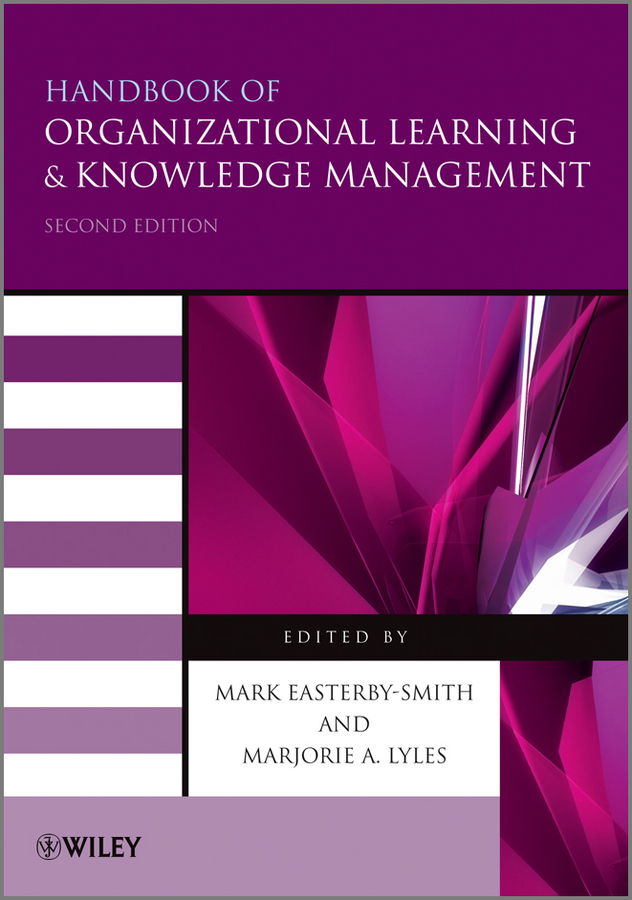Электронная книга: Lyles Marjorie A. «Handbook of Organizational Learning and Knowledge Management»

|
The fully revised and updated version of this successful Handbook is welcomed by management scholars world-wide. By bringing together the latest approaches from the leading experts in organizational learning&knowledge management the volume provides a unique and valuable overview of current thinking about how organizations accumulate'knowledge'and learn from experience. Key areas of update in the new edition are: Resource based view of the firm Capability management Global management Organizational culture Mergers&acquisitions Strategic management Leadership Издательство: "John Wiley&Sons Limited"
ISBN: 9781119977902 электронная книга Купить за 5853.56 руб и скачать на Litres |
Другие книги схожей тематики:
| Автор | Книга | Описание | Год | Цена | Тип книги |
|---|---|---|---|---|---|
| Gerald McLaughlin W. | The Handbook of Institutional Research | Institutional research is more relevant today than ever before as growing pressures for improved student learning and increased institutional accountability motivate higher education to effectively… — John Wiley&Sons Limited, электронная книга Подробнее... | 8493.82 | электронная книга |
См. также в других словарях:
Knowledge Management — (KM) comprises a range of practices used by organisations to identify, create, represent, distribute and enable adoption of what it knows, and how it knows it. It has been an established discipline since 1995 [Stankosky, 2005] with a body of… … Wikipedia
Organizational learning — is an area of knowledge within organizational theory that studies models and theories about the way an organization learns and adapts. In Organizational development (OD), learning is a characteristic of an adaptive organization, i.e., an… … Wikipedia
Knowledge management — (KM) comprises a range of strategies and practices used in an organization to identify, create, represent, distribute, and enable adoption of insights and experiences. Such insights and experiences comprise knowledge, either embodied in… … Wikipedia
Tacit knowledge — The concept of tacit knowing comes from scientist and philosopher Michael Polanyi. It is important to understand that he wrote about a process (hence tacit knowing) and not a form of . However, his phrase has been taken up to name a form of… … Wikipedia
Knowledge economy — The knowledge economy is a term that refers either to an economy of knowledge focused on the production and management of knowledge in the frame of economic constraints, or to a knowledge based economy. In the second meaning, more frequently used … Wikipedia
Organizational culture — is defined as “A pattern of shared basic assumptions invented, discovered, or developed by a given group as it learns to cope with its problems of external adaptation and internal integration that have worked well enough to be considered valid… … Wikipedia
